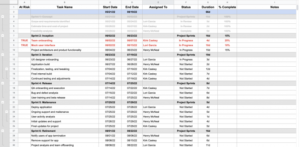Nearly half of US workers in a new survey by TELUS International say their employer values company culture, but must commit to continuing to foster that culture in a virtual office.

Image: iStock
While a majority of Americans (51%) don’t feel as connected to company work culture when working remotely, workers polled do offer employers suggestions to bring back the camaraderie they had while working in an office, according to a TELUS International survey of 1,000 American employees, working from home (WFH) during the pandemic.
SEE: Return to work: What the new normal will look like post-pandemic (free PDF) (TechRepublic)
Whether it’s because of the rapidity with which offices shifted to WFH as the COVID-19 crisis began to spread or that employers didn’t realize how critical a strong virtual office culture is, only 47.2% of Americans feel their employer values company culture and is fully aware of its importance to those workers who shifted to WFH. Those who were satisfied with the company culture in the business’ offices (29.2%) said the company culture isn’t as good as when working in an office.
Few want to operate in a vacuum: 93% of Americans think it’s essential to be regularly updated on the state of the company they work for, and on the plans for returning to the office.
How to improve company culture in a virtual office environment
The study report offered the following ways to boost company culture while your team is working remotely.
- Perhaps because employees want to feel valued and despite not being physically in an office, their work is being recognized with potential for upward mobility: 67.5% said the top motivator to collaborate and create that strong office culture is through virtual workshops and continued learning opportunities.
- Continuing the conversation, but not letting it get in the way of productivity: 66% said they want weekly (not daily) staff meetings in addition to one-on-one conversations with team leaders and managers.
- Employees who WFH have a host of competing responsibilities. Respondents said if they complete work on time and do a good job, they expect schedule flexibility (64.5%)
“Employees expect leaders to continue to engage with them as frequently, and they need them to demonstrate empathy and authenticity in those touchpoints, which can be achieved by leveraging high-tech tools, platforms, and apps,” said Marilyn Tyfting, chief corporate officer of TELUS International, in a press release. “Leaders must set the tone in these new virtual environments, using them to recognize and thank individuals, share knowledge and company updates, or even connect over a shared hobby or by posting a funny meme.”
Other key findings from the TELUS International report
What employees miss: In addition to feeling “less connected” to company culture while WFH (51%), 57% of employees miss small talk and interaction with colleagues in the office. A further 53% would rather collaborate with a team in person. Half of the respondents said they also missed a separation between work and home.
- Along with a transparent and thoughtful company culture, nearly 74% of the Americans in the survey want to be ensured that a safe and clean workplace is the top priority of their employers, after the COVID-19 crisis.
- WFH flexibility is also critical, and 65% want that from the company’s leaders.
- Workers do not want the company to adopt an out-of-sight, out-of-mind attitude toward them as they WFH, and one in five do not think their mental health is being prioritized.
SEE: How to overcome business continuity challenges (free PDF) (TechRepublic)
Culture plays a key role in retaining top talent, Tyfting said. “When an employee’s personal values align with” a company’s, she said, they stay long-term, and aspire to be “part of something ‘bigger'” and develop their careers. She added employers should “provide meaningful support, mentorship, and learning opportunities” to keep employees engaged.
Necessary leadership traits
A large majority (90%) agree that it doesn’t matter if supervised in an office or virtually, a great leader is a great leader.
Respondents said the most important components “of a thoughtful remote check-in from a manager or company leader” are:
- Asking how they can help the employee (60%)
- Sharing updates on the state of the business (51%)
- Creating employee development plans and suggesting new learning opportunities (47%)
- Bringing new opportunities to participate in the valued corporate learning and development programs (78%) (essential, considering 25% reported not learning anything new since WFH started)
SEE: Zoom vs. Microsoft Teams, Google Meet, Cisco WebEx and Skype: Choosing the right video-conferencing apps for you (TechRepublic)
The virtual learning and development opportunities respondents were most interested in receiving include:
- Online courses (62%)
- Regular feedback (51%)
- Professional development seminars (49%)
To make a training session engaging, respondents reported that an activity, such as a tutorial or whiteboard session, are the best practices for a successful remote session.
Culture is foundational to a company, but “we don’t consider it to be a physical place,” Tyfting said. “It’s a curated collection of values, vision, and purpose reflected in a company’s actions and decisions, and what comes to life in moments of connection and interaction between employees, to inspire a sense of meaning and belonging.”
Methodology: The telecommunications company TELUS International findings are the result of a Pollfish survey conducted on June 29 of 1,000 employed Americans.
Also see
Source of Article




